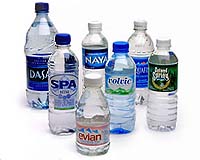| . |  |
. |
Berlin (UPI) Jun 2, 2010 Experts meeting in Berlin have urged for international cooperation to save the Aral Sea in Central Asia, which, in one of the most severe man-made ecological disasters, has lost nearly 90 percent of its water since the 1950s. "The drying-out of the Aral Sea is a worldwide symbol for increasing desertification that is sped up by climate change," said Olaf Tschimpke, the president of German environmental conservation group NABU. Together with the Kazakh Embassy, NABU last week organized a talk on the fate of the Aral Sea and the millions of people living in the wider Central Asian region. Some 60 years ago, the Aral Sea was the world's fourth-largest lake with an area of 26,000 square miles. Located between Kazakhstan and Uzbekistan, the sea was rich in plant and animal life, with thousands of fishing plants located in thriving cities along its shores. In 1918, the Soviet government decided that the two rivers that feed the Aral Sea would be diverted to irrigate the desert and turn it into rice and cotton farmland. The construction of irrigation channels began in the 1940s. Many of them were poorly built, however, allowing water to leak or evaporate. In the late 1950s, when most of the Aral Sea's external water supply had been diverted, its gradual dying began. Not only did the water retreat rapidly, it also became too saline for fish and plant species to survive. By 2007, it had declined to 10 percent of its original size, splitting into three lakes, one of which has since disappeared. The retreating water left behind massive amounts of salt and toxic chemicals -- the results of weapons testing, industrial projects, pesticides and fertilizer runoff -- that are picked up and carried away by the wind as toxic dust. The little water that remains is spoiled. As a consequence, people in the region are plagued by health problems. In 2009, the number of illnesses and deaths was greater than ever before, the German environmental group NABU claims. Moreover, because there is no longer a sea to act as a moderating factor, the summers in the region have become hotter and the winters colder. Experts meeting in Berlin last week called for greater international cooperation to revive the Aral Sea. Nurgali Ashimov, the environment minister of Kazakhstan, said key to saving the sea was "the development of a multilateral cooperation between the Central Asian states." He added that Kazakhstan as the current chair of the Organization for Security and Cooperation in Europe has already tried to place the Aral Sea higher on the regional agenda. Individual efforts have already paid off. The Kok-Aral dam built with money from the World Bank and Kazakhstan separated the North Aral from the remainder of the sea and has helped to raise the sea level by nearly 40 feet, causing a few dozen fishermen to return. However, more efforts are needed to truly save the economically deprived region, the experts said.
Share This Article With Planet Earth
Related Links Water News - Science, Technology and Politics
 Study Finds High Level Of Bacteria In Bottled Water In Canada
Study Finds High Level Of Bacteria In Bottled Water In CanadaWashington DC (SPX) May 28, 2010 A Montreal study finds heterotrophic bacteria counts, in more than 70 percent of bottled water samples, exceed the recommended limits specified by the United States Pharmacopeia (USP). Researchers from Ccrest laboratories report their results at the 110th General Meeting of the American Society for Microbiology in San Diego. "Despite having the cleanest tap water a large number of urban Ca ... read more |
|
| The content herein, unless otherwise known to be public domain, are Copyright 1995-2010 - SpaceDaily. AFP and UPI Wire Stories are copyright Agence France-Presse and United Press International. ESA Portal Reports are copyright European Space Agency. All NASA sourced material is public domain. Additional copyrights may apply in whole or part to other bona fide parties. Advertising does not imply endorsement,agreement or approval of any opinions, statements or information provided by SpaceDaily on any Web page published or hosted by SpaceDaily. Privacy Statement |